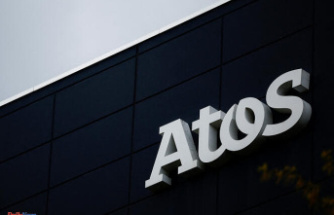The European Central Bank is attempting to slow down record inflation by raising interest rates. That won't happen any time soon. Nevertheless, the rate hike is important - for the credibility of the central bank and for the euro.
Finally! Christine Lagarde is doing something. For months, the ECB President and her team seemed to remain in a state of shock. Inflation rates in the euro zone shot up. But in the tower of the European Central Bank there was despondent hesitation.
The central bankers are now raising the key interest rate for the first time in eleven years - by 50 basis points and thus even more than expected. The egg dance is over with that.
The decision comes too late to have a quick and lasting effect. Inflation rates in Germany and Europe have been rising for months. Trade unions see this as a welcome opportunity to negotiate compensation. The cornerstone for the wage-price spiral feared by many experts, which ensures that inflation continues to fuel inflation, has long been laid.
The rate of inflation, which is currently so high, can hardly be slowed down by the interest rate decision anyway. Unlike in the past, inflation is due to the high cost of energy. So inflation is imported. Nevertheless, it is important for the ECB to raise interest rates. If only to defend credibility and demonstrate that it takes current inflation developments seriously.
The ECB also wants to support the weak euro. Because the US Federal Reserve recently raised the interest rate significantly, a lot of capital flowed from the euro area to the USA. This caused the euro to depreciate against the dollar. Because energy imports are usually paid for in dollars, this made buying gas and oil more expensive than it already was. This fueled inflation further.
Because over-indebted euro countries are likely to come under further pressure from the interest rate hike, the central bankers have come up with a new crisis instrument. The ECB wants to allow itself to buy bonds from individual countries in a very targeted manner. The goal: to prevent the threatening solvency of highly indebted member states and to ensure that the euro zone does not break apart as a result of the development.
This tactic is understandable, but could lead to new criticism. The central bank is committed to political independence. It is the job of politicians, not the ECB, to ensure that the various euro countries carry out their fiscal policy tasks. The credibility of the Frankfurt monetary authorities is still in danger.












